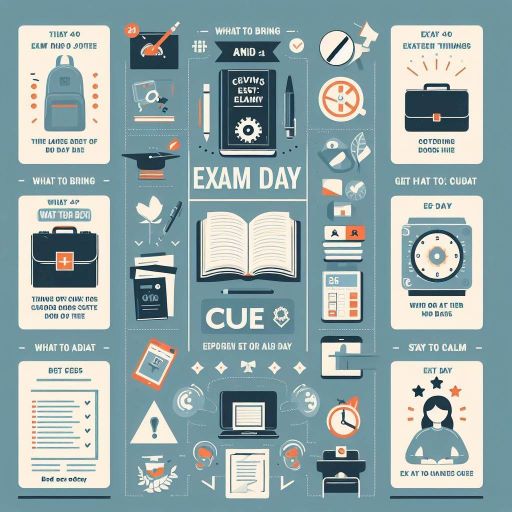Table of Contents
Guidelines for CUET Exam the Common University Entrance Test (CUET) is a critical examination for students aiming to enter undergraduate programs at universities. Proper preparation for the exam day is crucial to ensure that you perform your best. Here are some essential guidelines on what to bring, what to avoid, and how to stay calm and focused during CUET:

Exam Day Guidelines for CUET : What to Bring, What to Avoid
What to Bring on Exam Day:
- Admit Card: Make sure you have your admit card printed out and ready. It is the most important document you need for entry to the exam hall.
- Photo ID: Carry a valid photo ID (e.g., Aadhar card, passport, or driver’s license) to verify your identity.
- Stationery: Bring your own pens, pencils, and an eraser for any written components of the exam.
- Photographs: Carry two recent passport-sized photographs, as they might be required for documentation.
- Water Bottle: Bring a clear water bottle to stay hydrated throughout the exam.
- Face Mask and Hand Sanitizer: Keep a face mask on and bring a small bottle of hand sanitizer for safety during these times.
- Clock or Watch: If allowed, bring a watch to help manage your time during the exam.
What to Avoid on Exam Day:
- Electronic Devices: Avoid bringing any electronic devices such as mobile phones, smartwatches, calculators (unless specified), or other gadgets. These items are typically prohibited in the exam hall.
- Bags: Bags or backpacks may not be allowed in the exam hall. Only carry the necessary items.
- Study Materials: Do not bring any books, notes, or other study materials to the exam.
- Food: Avoid bringing snacks or food items unless medically necessary.
- Cheat Sheets: Bringing any unauthorized materials or cheat sheets can result in disqualification. Exam Day Guidelines for CUET
Tips for Staying Calm and Focused:
- Arrive Early: Reach the exam center at least an hour before the scheduled time to allow for security checks and finding your seat.
- Practice Deep Breathing: Take a few deep breaths to calm your nerves and clear your mind before starting the exam.
- Read the Instructions Carefully: Start by reading all instructions carefully. This will help you understand the exam format and avoid mistakes.
- Prioritize Questions: Begin with questions you are most comfortable with to build confidence and momentum.
- Manage Your Time: Keep track of the time you spend on each question. If you’re stuck on a question, move on and come back to it later if time permits.
- Stay Positive: Maintain a positive mindset throughout the exam. Avoid panicking if you face challenging questions.
- Take Mini-Breaks: If allowed, close your eyes and take a few deep breaths for a moment of relaxation if you feel overwhelmed.
- Review Your Answers: Allocate time at the end of the exam to review your answers and make any necessary corrections.
Last Day Preparation Tips for Students
Preparing for the Common University Entrance Test (CUET) can be nerve-wracking, especially on the last day before the exam.
- Review Key Concepts:
- Go over your notes and review important concepts in the subjects you will be tested on.
- Focus on high-yield topics and areas where you need more practice.
- Practice Sample Questions:
- Do a quick set of practice questions or problems from each subject to keep your skills sharp.
- Don’t overdo it; just aim to refresh your understanding.
- Stay Organized:
- Organize everything you’ll need for the exam, such as your admit card, photo ID, and stationery.
- Lay out your clothes and essentials for the exam day to avoid stress in the morning.
- Rest and Relax:
- Get a good night’s sleep to ensure you are well-rested and alert for the exam.
- Avoid studying late into the night, as this can negatively impact your performance.
- Plan Your Journey:
- Check the location of your exam center and plan your route.
- Make sure to factor in extra time for traffic or delays so you arrive on time.
- Stay Positive and Confident:
- Maintain a positive mindset and believe in your preparation.
- Visualize yourself doing well in the exam to boost your confidence.
- Avoid Last-Minute Cramming:
- Resist the urge to learn new topics or cram a lot of information at the last minute.
- This can lead to confusion and stress; instead, focus on reinforcing what you already know.
- Relax and De-Stress:
- Engage in relaxing activities such as meditation, deep breathing, or listening to soothing music to calm your nerves.
- Avoid any unnecessary stress and distractions on the day before the exam.
- Keep Your Mind Sharp:
- Stay away from activities that may cause fatigue, such as heavy physical exercise or excessive screen time.
- Focus on keeping your mind alert and rested.

